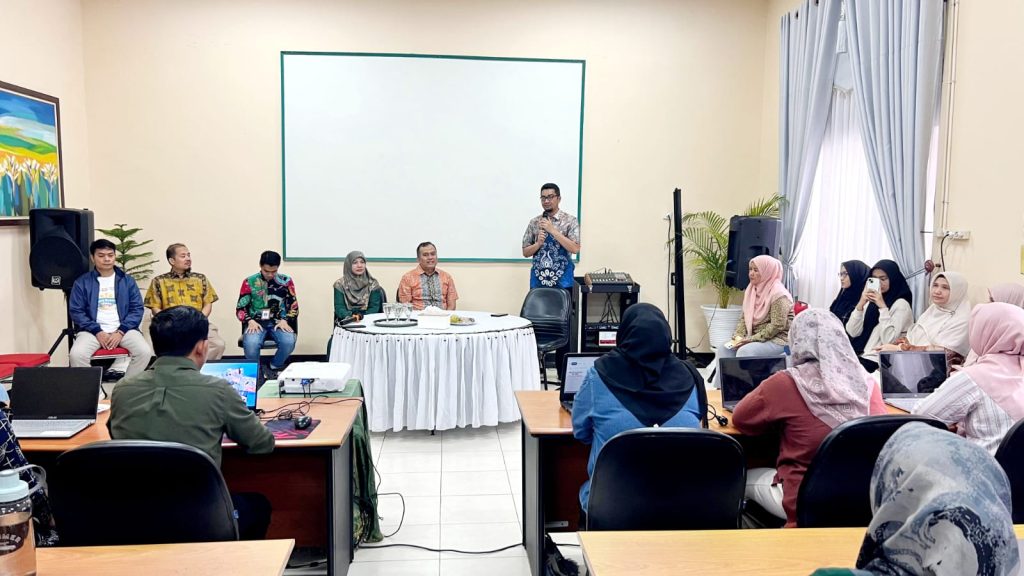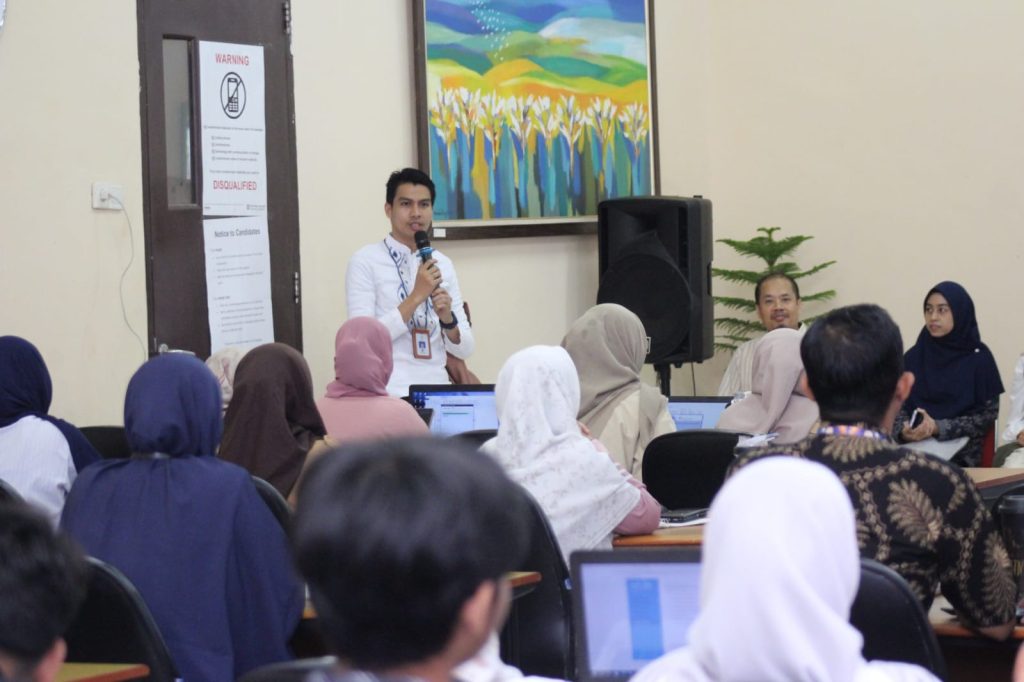
Pidie, Aceh — The Faculty of Mathematics and Natural Sciences (FMIPA) of Universitas Syiah Kuala (USK), through its Department of Statistics, successfully organized a Coding Training on R, Python, and MySQL under the theme “Coding for the Future: Understanding Programming Languages to Enhance Literacy and Numeracy.” This event was a strategic collaboration between FMIPA USK, Sukma Bangsa School Pidie, the Institute for Social Science, Economics, and Digitalization (ISSED), the Statistics Department, and R-Ladies, with full support from the Aceh Education Office.
Held from January 17–19, 2025, the training aimed to improve digital literacy and information technology skills among students and educators in Pidie Regency, Aceh. A total of 60 participants, comprising 30 students and 30 teachers from various schools, actively engaged in the program. The training covered foundational programming skills in R, Python, and MySQL, essential competencies in today’s era of digital transformation.

Opening and Appreciation from Partners
The training was officially opened by Dr. Saiful Mahdi, S.Si., M.Sc., a lecturer from the Statistics Department of FMIPA USK, and Marthunis Bukhari, S.Pd.I., M.A., Director of Sukma Bangsa School Pidie. In his remarks, Marthunis expressed his deep appreciation for FMIPA USK’s contributions to the event’s success.
“This collaboration is an essential step in strengthening the digital literacy of Aceh’s younger generation. Through this training, we hope participants will be better prepared to face the challenges of the digital era,” said Marthunis.
Quality Training Materials and Experts
To ensure the training’s quality, FMIPA USK presented a team of competent and experienced instructors, including:
- Dr. Selvi Mardalena, S.Stat., who taught the fundamentals of R programming, widely used for statistical analysis and data visualization.
- Dr. Rumaisa Kruba, S.Si., and Dr. Asep Rusyana, S.Si., M.Si., who led sessions on Python, a versatile programming language for application development and machine learning.
- Diaz Prasetyo, S.T., DEA, from ISSED, who delivered MySQL training, a critical tool for modern database management.
The sessions were designed to be interactive, encouraging participants to actively engage through simulations and hands-on exercises.

Closing and Future Expectations
The event concluded with remarks from the Head of the Statistics Department, Prof. Dr. Zurnila Marli Kesuma, S.Si., M.Si., and the Head of the Aceh Education Office, Marthunis, S.T., D.E.A. In his closing speech, the Head of the Aceh Education Office emphasized the importance of continuing such initiatives.
“This coding training reflects a strong commitment to supporting the development of digital competencies in Aceh. This collaboration is a strategic step in preparing the younger generation for the digital age. We hope similar programs can be expanded to a broader audience,” he stated.
Remarks from FMIPA USK Leadership
Separately, the Dean of FMIPA USK, Prof. Dr. Taufik Fuadi Abidin, S.Si., M.Tech, highlighted that the training is a concrete implementation of the Cooperation Agreement between FMIPA USK and the Aceh Education Office.
“This initiative is a tangible contribution from higher education institutions to improving the quality of education in Aceh. We firmly believe that digital literacy forms a crucial foundation for the younger generation to navigate global challenges successfully,” said Prof. Taufik Fuadi Abidin.
A Milestone for Digital Advancement
This training marked the first implementation of the partnership between FMIPA USK, the Statistics Department, and the Aceh Education Office in the field of programming technology. Beyond enhancing the digital literacy of students and teachers, the event serves as a stepping stone for similar initiatives in the future.

With full support from various stakeholders, this success underscores the critical role of collaboration between educational institutions, government bodies, and professional communities in building a digitally skilled and globally competitive human resource pool.
